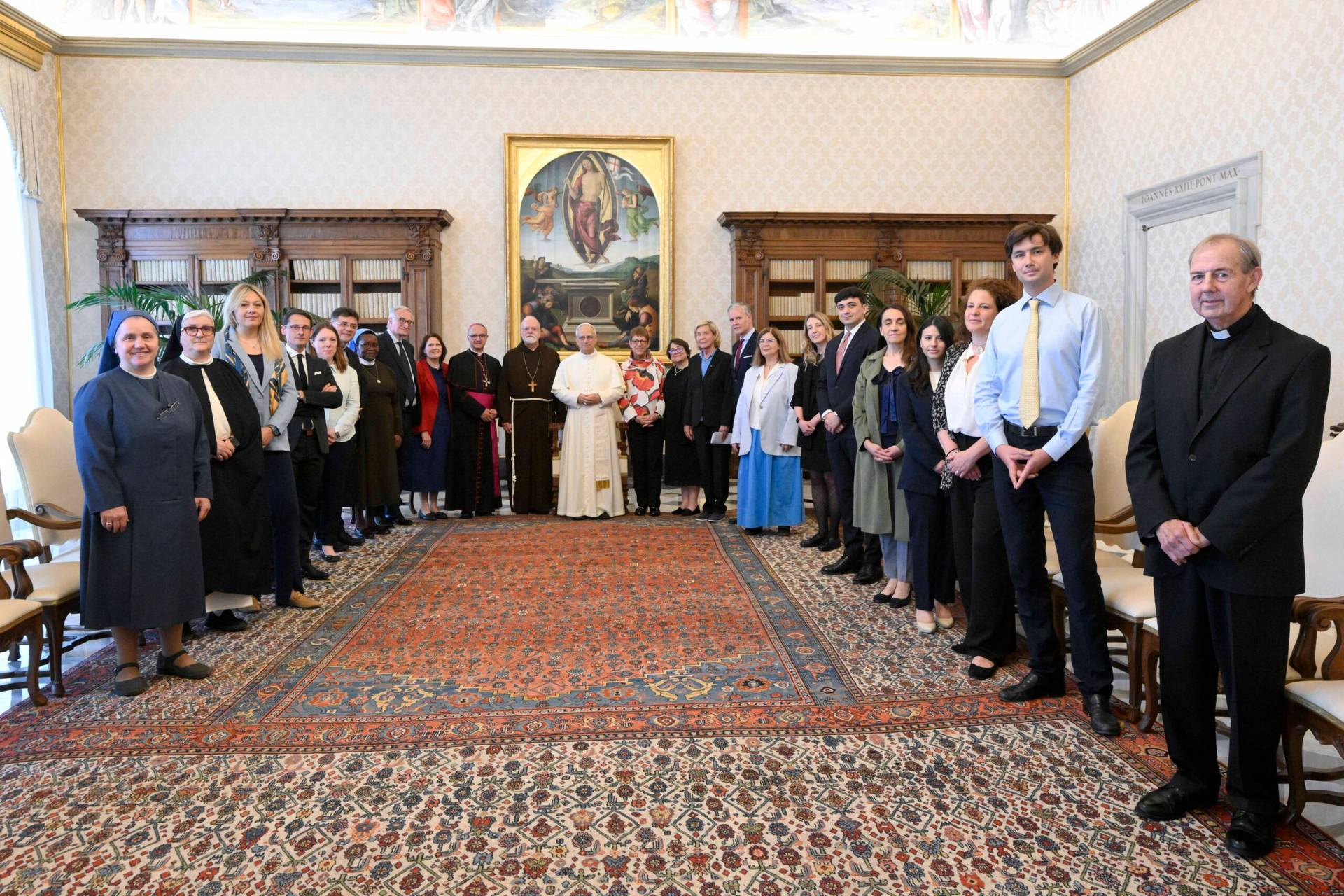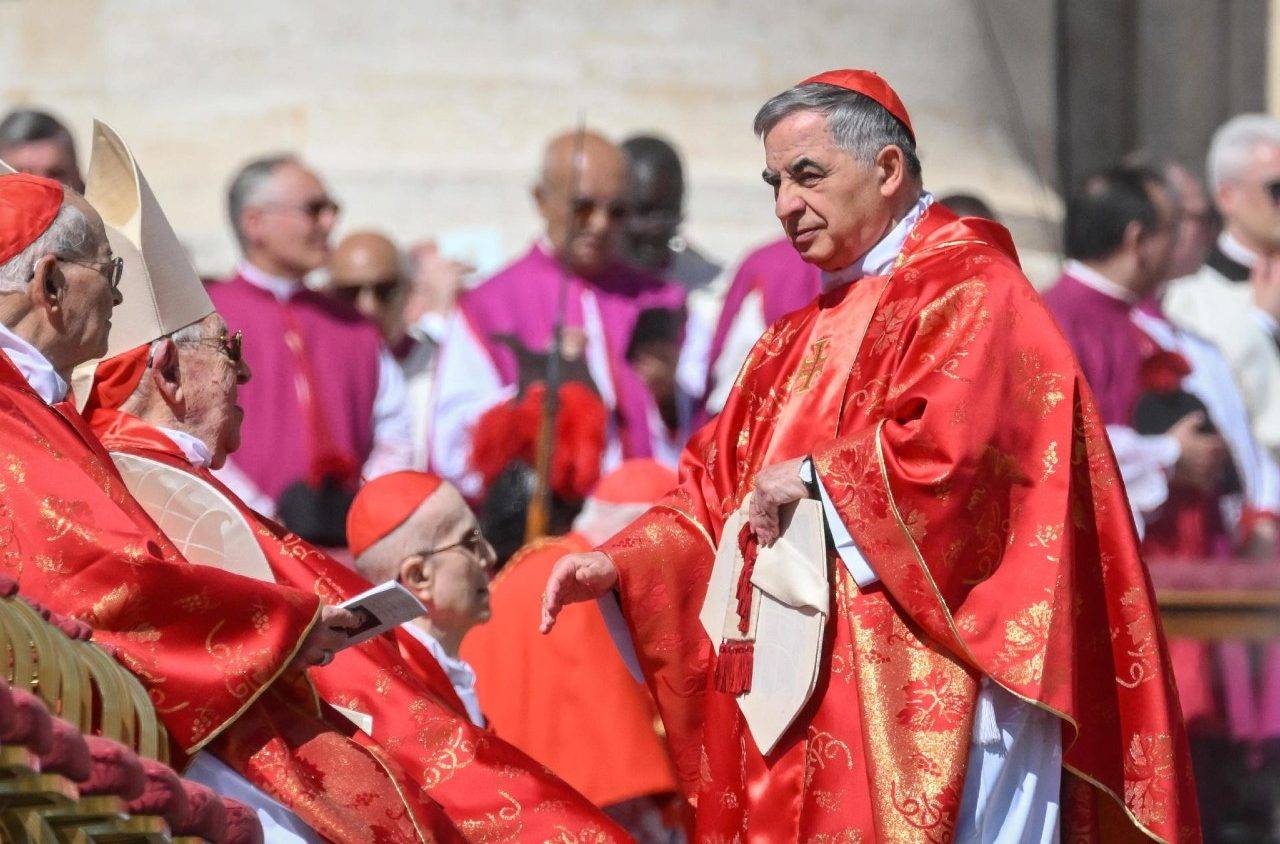ROME – With the nomination of Joseph Donnelly as his ambassador to the Vatican, President Joe Biden once again confirmed he’s a master of conventional political wisdom. Donnelly likely will pass muster with the Vatican on moral grounds, as an anti-abortion Democrat and a faithfully married father of two, and diplomatically, since he’s a former US Senator positioned to have real influence with the administration.
As a former senator, he’s also likely to get some deference in the confirmation process that other candidates might not enjoy.
Biden’s defining strength as an establishment man, however, is also his weakness. With this undeniably solid pick, he nevertheless missed the chance to do something groundbreaking and outside-the-box as just the country’s second Catholic Commander-in-Chief.
The United States and the Holy See have had full diplomatic relations since 1984, under President Ronald Reagan, who managed to persuade Congress to repeal an 1867 law banning the use of federal money for a Vatican mission on the grounds of the separation of church and state. Since that time there have been 11 US Ambassadors to the Holy See, and Donnelly would become the twelfth if he’s confirmed.
There have been real contrasts among those envoys. Some have been older figures near the end of their careers, with the Vatican gig something of a reward for long service, while others have been younger and at the height of their influence. Obviously, some have been Republicans and some Democrats, depending on the administration, some have been men and others women, and some have been politicians while others were academics or institutional leaders.
The one constant is that every one of the 11, now to be 12, US Ambassadors to the Vatican has been a Roman Catholic. Reagan set the precedent when he named California businessman and rancher William Wilson to the post, a longtime Reagan backer and practicing Roman Catholic. Every one of Reagan’s successors, Republican and Democrat alike, has followed suit.
Presumably, the thinking is that a Catholic would have an edge engaging the Vatican, by virtue of already knowing the language and culture of the church, and also that naming a Catholic will be taken by the Vatican as a sign of respect.
Here’s why that “Catholics only need apply” policy is a bad idea.
First, the Vatican does not require an accredited ambassador to be a Catholic, and a strong share of the diplomatic corps here in Rome isn’t. Few majority Muslim states that have diplomatic relations with the Vatican send Catholics, and relatively few Asian nations do either. Across Africa it’s hit-and-miss. Majority Orthodox nations in Eastern European nations generally dispatch Orthodox ambassadors, and so on.
Even in Western countries, it’s not assumed that an ambassador has to be Catholic. The United Kingdom, for instance, has only named one Catholic to the job since opening full relations with the Vatican in 1982, two years before the United States.
Vatican diplomats are quite accustomed to dealing with Catholics and non-Catholics alike, and, in some ways, to be honest, they prefer the latter. With non-Catholics, you generally don’t have to worry about them arriving in Rome with a personal agenda on inter-church matters, which could complicate the state-to-state relationship.
In truth, the Vatican really couldn’t care less about an envoy’s religious affiliation. What they’re far more sensitive to is what a nomination says about how seriously a given administration takes the relationship with Rome.
If a nominee is perceived as a low-level figure, or someone getting the job mostly as a reward for service that’s in the past, Vatican types, ever sensitive to their standing as a small state easy to overlook, will be put out. On the other hand, if the pick is perceived as someone of consequence with real juice in the administration they represent, the Vatican will be pleased, regardless of where (or if) that person worships.
I promise, for example, that had the Clinton administration sent Warren Christopher to the Vatican, no one here would have cared that he was an essentially unchurched Lutheran. Had Bush sent Condoleezza Rice, no one would have made an issue of her being the daughter of a Presbyterian minister.
The idea that a Catholic carries some natural advantage as a Vatican envoy, for what it’s worth, is a complete myth. Ask anyone who’s ever done the job — it doesn’t matter how often you show up at your local parish, how many Masses you served as an altar boy or girl, or how many theology classes you took in college. The Vatican is still going to be a mysterious, opaque place, and knowing some hymns and prayers is about as helpful in deciphering it as going to Mars on the strength of having watched “Capricorn One.”
Further, the insistence on naming Catholics unnecessarily limits the talent pool.
Granted, Catholics represent roughly one quarter of the adult American population, and you can always find a talented and qualified Catholic for the gig. Still, that means three-quarters of the population is de facto disqualified, which usually isn’t a prescription for finding the very best candidate for any given position.
The “Catholics only” rule tends to be a special burden for Democratic administrations, since you have to find a Catholic whose track record on abortion and other issues is sufficiently liberal to satisfy the Democratic base but not so extreme as to make the person unacceptable to their Vatican counterparts. Not only does that limit the talent pool even further, but it makes the relationship with the Vatican seem like a headache from the get-go.
If any US President were to break the mold, in the abstract you’d think it would be easiest for a Catholic to be the one. That way it would seem less like confessional pettiness and more like an act of graciousness for the good of the nation.
Biden had that chance, but clearly he’s chosen not to take it. In all likelihood, that caution will pay dividends in the short term.
By all accounts, the 66-year-old Donnelly is liked and respected on both sides of the political aisle, and, as someone who led the “Catholics for Biden” push in the 2020 election, he also enjoys a personal relationship with his boss and strong standing in the White House. Those are all qualities that will serve him well at the Vatican, and he could turn out to be one of the most effective ambassadors to the Holy See the United States has ever enjoyed.
The point, however, is that limiting the search for such individuals to Catholics only is both unnecessary from the Vatican’s point of view and, arguably, counter-productive for American interests.
That may not have been enough to upend conventional wisdom this time around. But sooner or later, it’s an artificial and, arguably, discriminatory policy that needs a hard look.
Follow John Allen on Twitter: @JohnLAllenJr


















